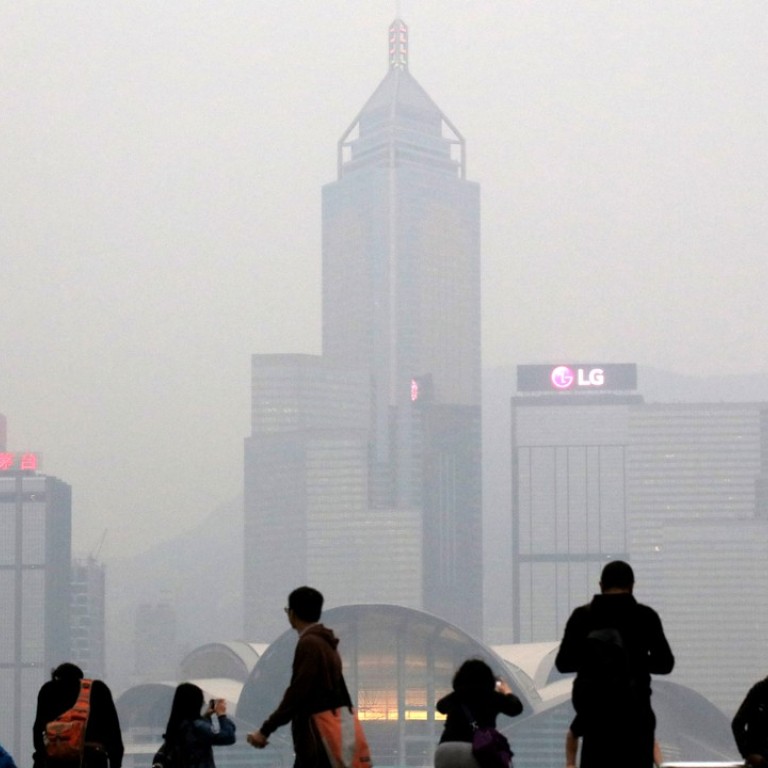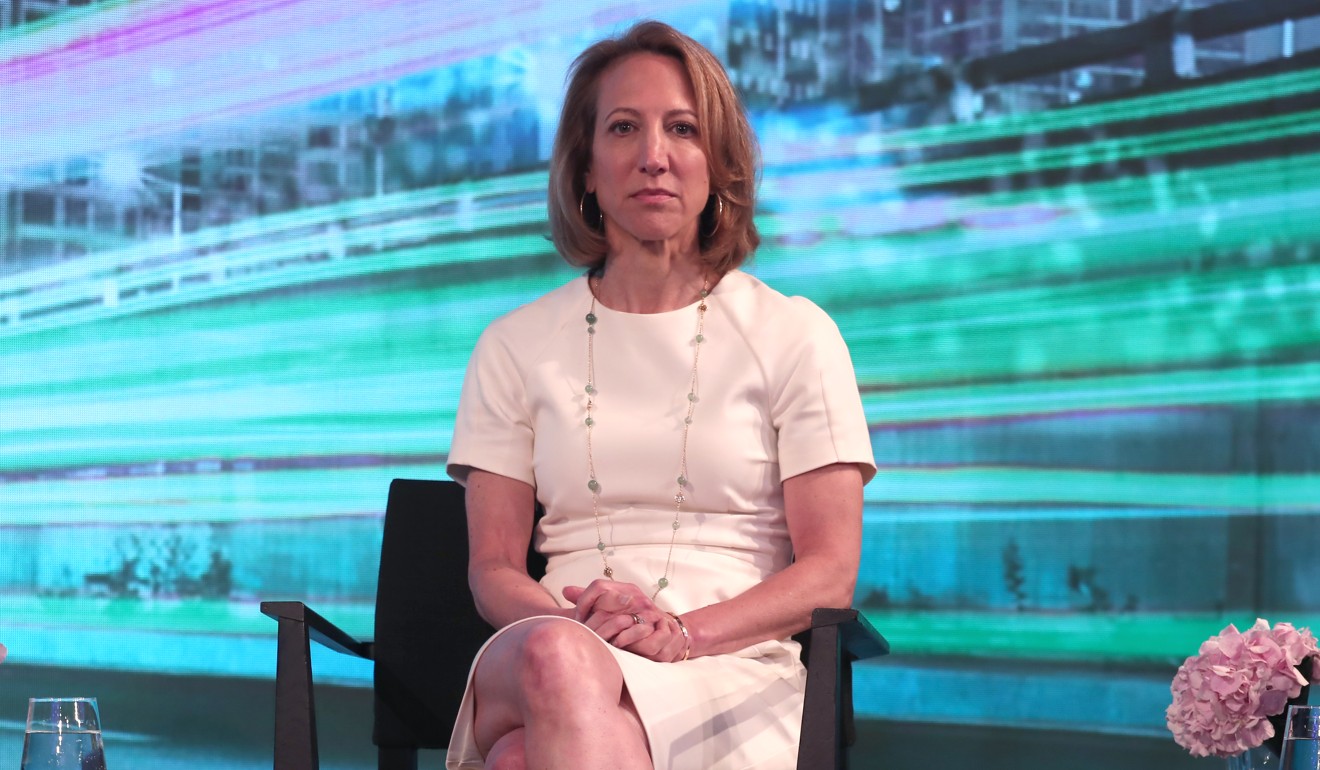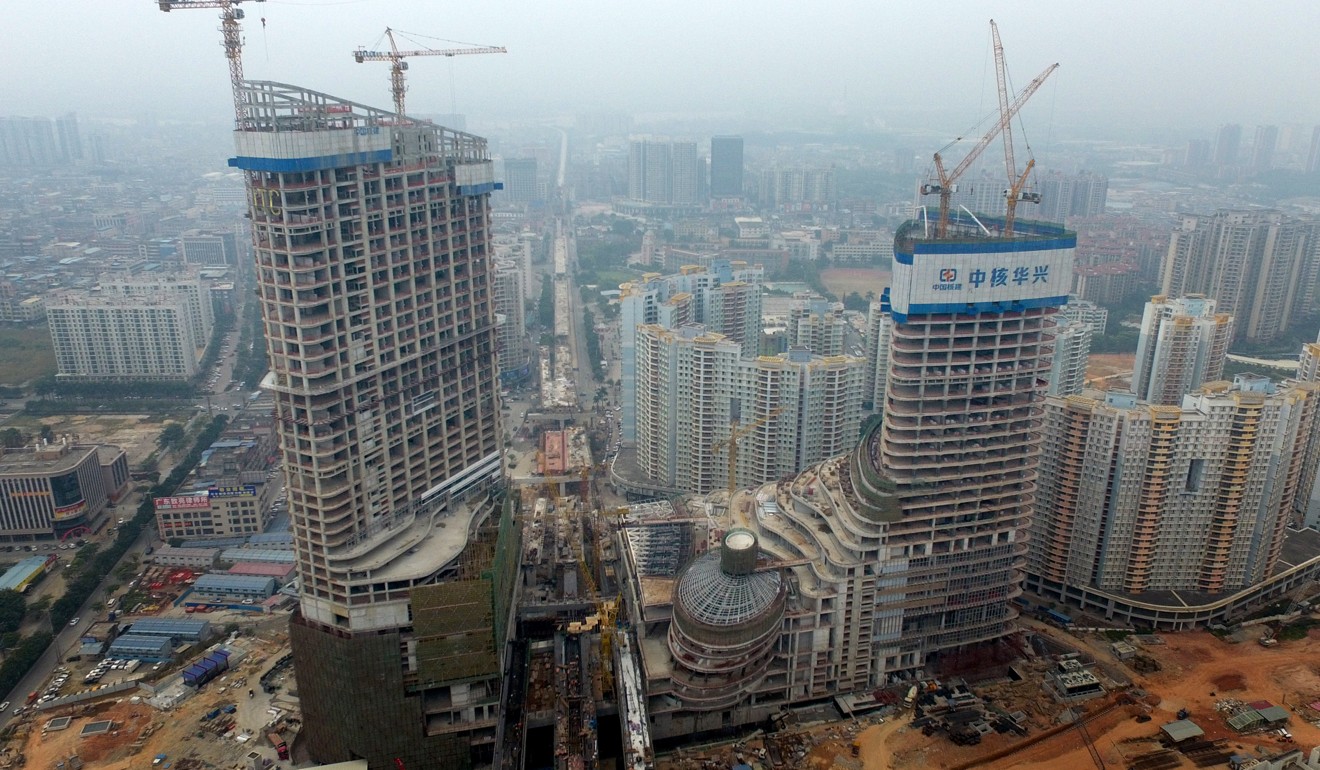
US business leaders bullish about Hong Kong’s future despite concerns over erosion of city’s freedoms under Chinese rule
More than half of those surveyed believe business environment in the city is improving, while Greater Bay Area gives plenty of reason to be confident in years ahead
Most US companies in Hong Kong believe there has been an erosion of the city’s “one country, two systems” form of government, a survey by one of the city’s largest business chambers revealed on Wednesday.
However, while there was also a feeling that the rule of law had been eroded, 70 per cent of US corporate leaders backed the city’s position as a global financial hub, and 56 per cent believed the business environment was improving.

“Although the views on the topic of one country, two systems are mixed, the majority are worried about the situation,” said Tara Joseph, president of AmCham Hong Kong.
Although the views on the topic of one country, two systems are mixed, the majority are worried about the situation
According to the survey, about one quarter of the respondents said the business environment in Hong Kong was deteriorating, while 56 per cent believed it was improving, and 19 per cent thought it had stayed the same.
Hong Kong must do more to lure foreign firms, US chamber says
While international business leaders were optimistic about the impact on revenue from operating in the Greater Bay Area, only 14 per cent said their companies had plans to expand into that area, results showed.
“People are very bullish [about the Great Bay Area],” Joseph said. “The question is how fast the Hong Kong government can move to make it happen.”
Concerns among those surveyed when it came to expansion in the Greater Bay Area centred around government transparency, weak rule of law and policy uncertainties on the mainland.

Elsewhere, political risks from US and China trade dynamics act as a major hurdle to the companies’ expansion plans, although trade tensions are not as important as government transparency and rule of law when affecting Hong Kong’s status in international business.
Similar results were found in the survey released by the American Chamber of Commerce in China this week. US business leaders in China urged policymakers in Washington and Beijing to focus on issues such as fairness and reciprocal treatment, rather than putting too much emphasis on cutting the trade deficit in their next round of talks.
Hong Kong rule of law, diverse economy keys to ‘Greater Bay Area’
The survey showed inconsistent regulatory interpretation, and unclear laws, were still the biggest challenge for US firms doing business in China.
Whereas in Hong Kong, American business leaders praised the traditional advantages of the city, especially the rule of law and free flow of information, but expressed concerns over a growing bureaucracy.
“[The advantages] are still soundly in place,” said Jack Lange, chairman of AmCham Hong Kong.
“However, business leaders also show concerns about whether the Hong Kong government can adapt to the pace and scope of innovation required for success in the current business environment.”
Surveyed corporate leaders were also worried about Hong Kong’s smart city initiative. Around 60 per cent of the respondents believed opaque data access, and a conservative bureaucratic approach, remained the greatest challenge for Hong Kong in the smart city race.
The survey, conducted by Ipsos Business Consulting between March and May, polled 1,380 corporate and individual members of AmCham, and collected 230 valid responses.

